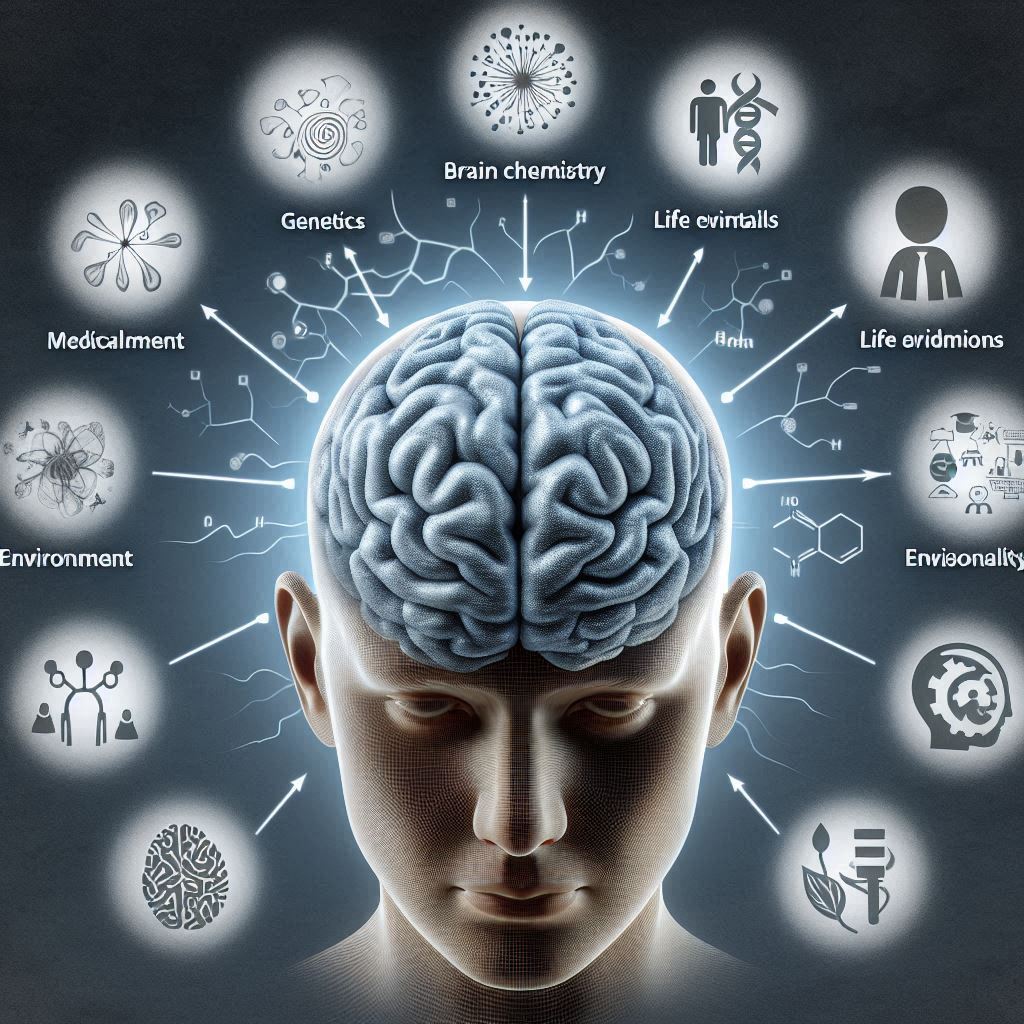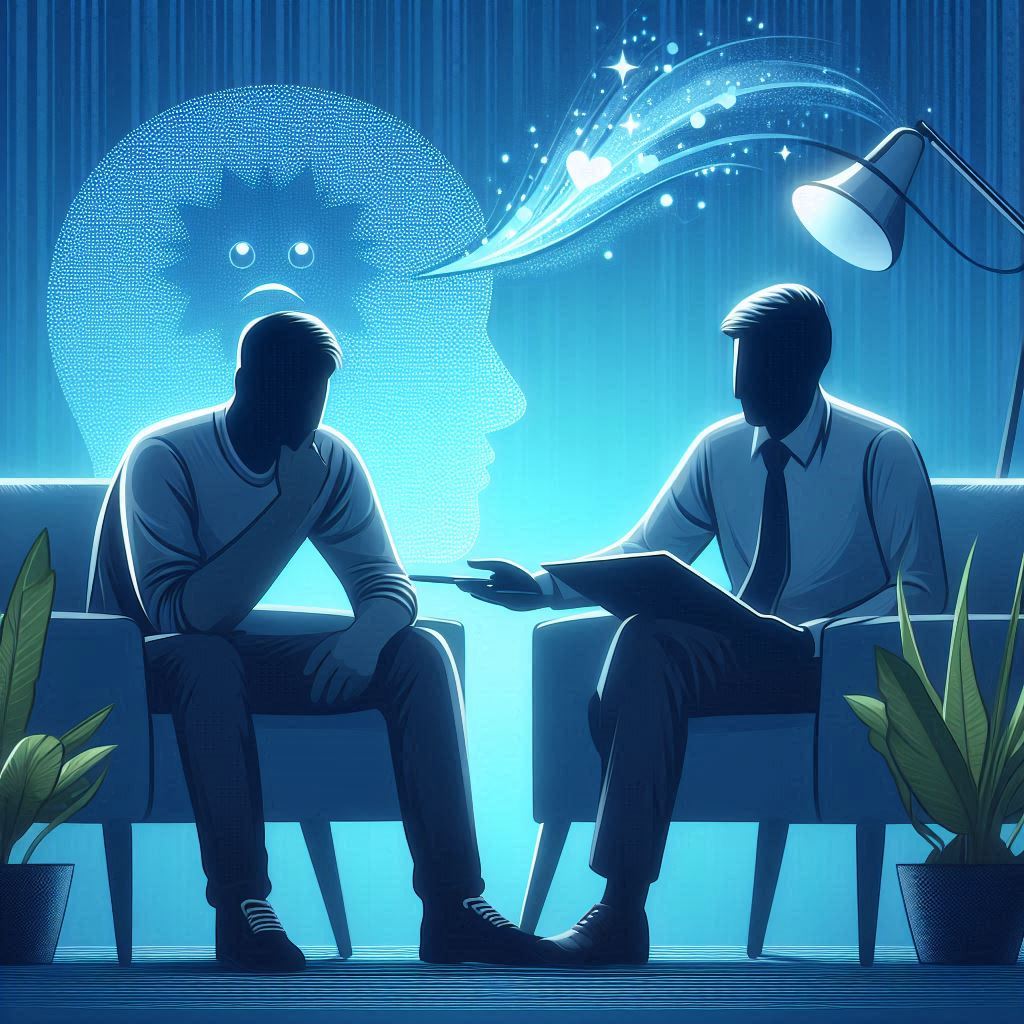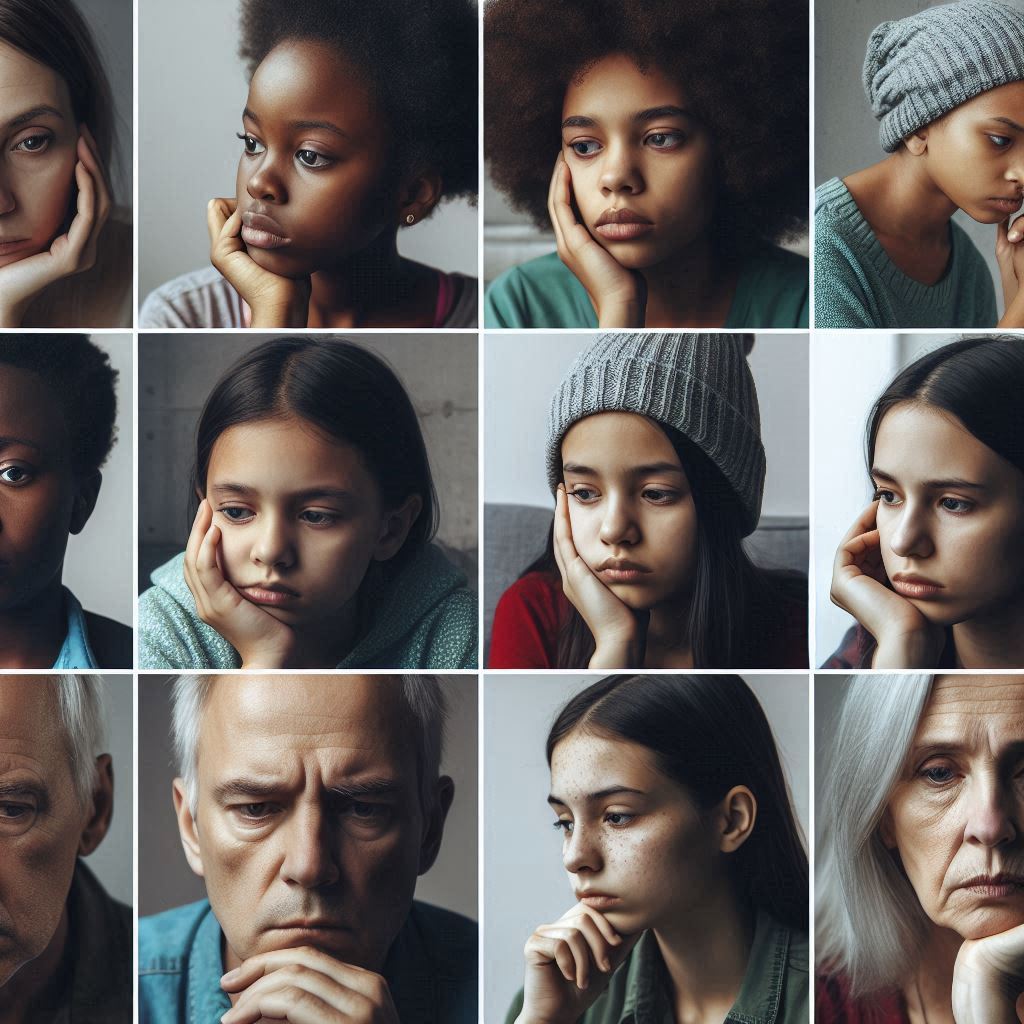Depression is a mental health condition that affects people of all ages, from children to older adults. It can change how you feel, think, and act, making everyday life difficult. Let’s explore what depression is, its symptoms, and what can cause it.
What is Depression?
Depression is more than just feeling sad or having a bad day. It’s a serious condition that lasts for weeks, months, or even years. It can make it hard to do everyday activities like going to school, going to work, playing with friends, or enjoying hobbies.
Symptoms of Depression

People with depression might show different symptoms. Here are some common ones:
- Persistent Sadness: Feeling sad or empty for a long time, even when there’s no specific reason.
- Loss of Interest: Not wanting to do things you used to enjoy, like playing games, sports, or spending time with friends.
- Changes in Appetite: Eating much more or much less than usual, leading to weight gain or loss.
- Sleep Problems: Having trouble falling asleep, staying asleep, or sleeping too much.
- Lack of Energy: Feeling tired all the time, even when you’ve had enough sleep.
- Difficulty Concentrating: Finding it hard to focus on tasks, remember things, or make decisions.
- Feelings of Worthlessness: Thinking you’re not good enough, feeling guilty, or blaming yourself for things that aren’t your fault.
- Physical Symptoms: Having headaches, stomachaches, or other aches and pains that don’t seem to have a clear cause.
- Thoughts of Death or Suicide: Thinking about hurting yourself or wanting to die. This is very serious and needs immediate help from an adult or professional.
Causes of Depression

Depression doesn’t have a single cause. It’s often a combination of different factors. Here are some possible causes:
- Genetics: Depression can run in families. If someone in your family has depression, you might be more likely to have it too.
- Brain Chemistry: Chemicals in the brain called neurotransmitters play a role in mood. When they’re not balanced, it can lead to depression.
- Life Events: Stressful or traumatic events, like losing a loved one, parents’ divorce, or bullying, can trigger depression.
- Medical Conditions: Certain illnesses, like chronic pain or thyroid problems, can contribute to depression.
- Environment: Living in a stressful or unsafe environment can increase the risk of depression.
- Personality: Some people are more prone to depression because of their personality traits, like being very self-critical or having low self-esteem.
Depression in Different Age Groups
Children and Teens:
- Symptoms: Children might show irritability, clinginess, worry, or refusing to go to school. Teens might show sadness, anger, or trouble with schoolwork and relationships.
- Causes: Bullying, family issues, academic pressure, and social media can all contribute.
Adults:
- Symptoms: Adults might feel hopeless, lose interest in hobbies, have trouble sleeping, or feel tired all the time.
- Causes: Job stress, relationship problems, financial issues, and major life changes can be triggers.
Older Adults:
- Symptoms: Older adults might show sadness, memory problems, physical aches, or loss of interest in activities.
- Causes: Loneliness, loss of loved ones, health problems, and reduced sense of purpose can contribute.
Getting Help

If you or someone you know is showing signs of depression, it’s important to get help. Talk to a trusted adult, like a parent, teacher, or school counselor. They can help you find a doctor or therapist who specializes in treating depression. For adults, seeking help from a healthcare provider or mental health professional is important.
Conclusion
Depression is a serious condition that affects people of all ages. Understanding the symptoms and causes can help you recognize it and seek help. Remember, it’s okay to ask for help, and with the right support, people with depression can feel better and enjoy life again.









Leave a Reply